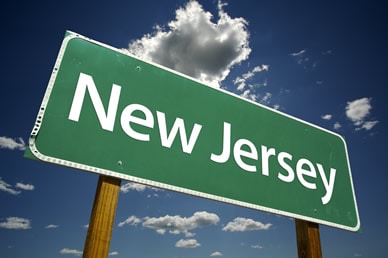All eyes are on the Supreme Court of the United States as the New Jersey sports betting case begins with the arrival of the first amicus brief. In the brief, Florida State associate professor Ryan Rodenberg targets the sports leagues involved with the case—the NFL, NBA, MLB, NHL and NCAA. The brief is the first of many in what will likely become one of the biggest cases of the year.
An interesting aspect of Rodenberg’s brief is that he does not make arguments for the plaintiff or the defendant, but rather arguments against PASPA. That is not to say he calls for its repeal on the grounds of it being constitutional or unconstitutional (in fact, he doesn’t offer a distinction as to which he believes it is), but states his issue with specific parts of the long-standing federal ban on sports betting. He highlights two different components in his assertion—one, that PASPA grants the leagues too much power to the leagues and two, that certain states are grandfathered in. Rodenberg argues that leagues should not have as much enforcement power with regulation. Its unequal treatment of states also raises constitutional concerns.
His description of PASPA sheds light on how ridiculous its policies are. He describes PASPA’s regulatory stance as “outsourcing a form of privatized regulatory power for unilateral use against the States.” The brief suggests that this part of PASPA is in violation of the private nondelegation doctrine. The nondelegation doctrine is the idea that the government cannot authorize private entities (in this case, the leagues) to exercise a function when it is constitutionally supposed to exercise itself. The FDA and IRS are examples of outside entities created by the government and issued regulatory authority. So, in theory, the situation can exist and function well, but Rodenberg does not believe sports betting regulation being delegated to the sports leagues meets this standard. To further his claim, Rodenberg utilizes two thoughtful examples including a hypothetical where Congress bans certain states from implementing minimum wage reform and then delegates subsequent regulatory efforts to the will of private fast food companies inherently against raising minimum wage. Another example is if Congress banned certain states from passing laws on hydraulic fracturing and then passing regulatory authority over to private oil and natural gas companies.
If those examples seem absurd and redundant, that is the point. PASPA hands off regulation to sports leagues predisposed against sports betting, essentially weaponizing the doctrine to be used against whatever states the leagues see fit. This can be seen with the New Jersey case. In 2014, NJ attempted to pass law granting the authority to host regulated sports betting in NJ to licensed gambling establishments. The sports leagues brought a lawsuit against the state and caused the legislation to be derailed.
The other component of Rodenberg’s argument is the case for equal sovereignty. He believes states like Nevada receive favorable treatment under PASPA. Each state should have the same right as Nevada to host single-game sports betting. While there are four states exempted from PASPA, only Nevada has single-game wagering options.
Whether Rodenberg’s brief, or any subsequent briefs, will have an impact on SCOTUS’ ruling remains to be seen, but the fact the case is even being heard is a good sign. NJ hopes to win the right to host sports betting and the sports leagues want PASPA to be enforced as is. The case is expected to move slowly and possibly into 2018, so all interested parties will have to wait it out.

